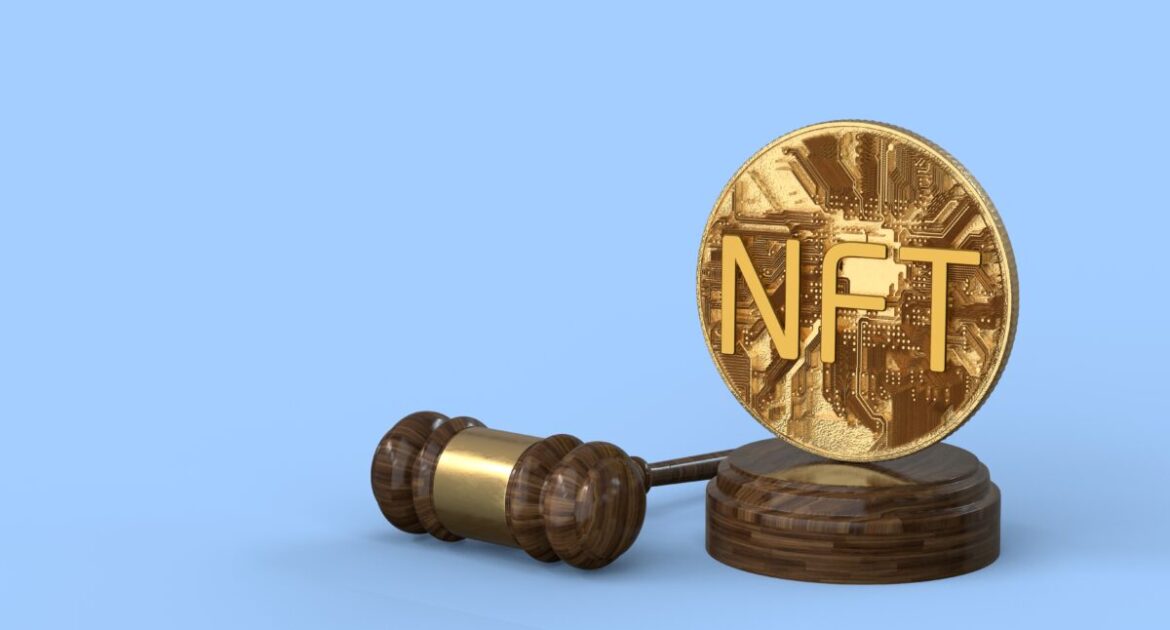Nick Breen, partner at international law firm Reed Smith, believes that the UK’s approach to the regulation of NFTs is flawed and based on misperception.
UK regulators tend to bundle up crypto, NFTs and utility tokens as ‘crypto-assets’. For this reason, Breen contends that marking them as something only for financial speculation downplays the value and wider application of NFTs.
He puts forward NFTs as simply tokens, or a record of a transaction that is entered on a blockchain; ascertaining that they are not assets themselves.
With the DCMS inquiry currently inviting evidence on whether ‘vulnerable people’ are at risk of NFT speculation and looking at the harms to society caused by NFT speculation, Breen sees a strong element of fearmongering involved in the current approach.
Throughout this guest post, he outlines how the application of NFTs is not commonly understood and why this lack of regulation is now driving a reductive, reactive regulatory approach based on an outlying use case:
Despite the extensive media coverage afforded to NFTs, largely ignited by the $69million NFT sale of Beeple’s digital artwork in March 2021, they remain significantly misunderstood in the public eye.
This misunderstanding of what they are is then coupled with numerous news stories about hacking, scams and broader crypto volatility. Therefore it’s easy to see why NFTs are seen by many as nothing more than cash grabs and Ponzi schemes.
This negative perception is not helped by the way in which NFTs are often conflated with cryptocurrencies. Consequently, they’re seen as assets for speculation and investment.
As regulators in the UK and throughout the world scramble to figure out whether and how to regulate NFTs, we are beginning to see how these biases and generalisations held by the public are shaping the lens through which authorities are approaching their investigations.
In November, the UK’s DCMS committee launched an inquiry into NFTs and published a call for evidence. The DCMS has asked the public various questions including: is the UK’s light-touch NFT regulation sufficient; what are the potential harms to vulnerable people of NFT speculation; do blockchains offer security to British investors; and what are the potential benefits to individuals and society of NFT speculation?
It’s telling that three of the four questions posed by the DCMS relate to speculation and investment. This is given further context by the chair of the committee, Julian Knight MP, who commented: “NFTs swept through the digital world so fast that we had no time to stop and consider. Now that the market is veering wildly, and there are fears that the bubble may burst. We need to understand the risks, benefits and regulatory requirements of this groundbreaking technology.
“Investors, especially vulnerable ones, are at risk of being swindled into buying NFTs whose value may tank at the moment of purchase. Our inquiry will investigate whether greater regulation is needed to protect these consumers and wider markets from volatile investments.”
Prior to the DCMS inquiry, the Advertising Standards Authority (ASA) published guidance on the advertising and marketing of cryptoassets.
The majority of cryptoassets aren’t currently regulated by the Financial Conduct Authority (FCA). Yet as per guidance, all unregulated cryptoassets will be subject to the UK’s advertising codes and under the ASA’s remit.
The guidance explains that NFTs, as well as cryptocurrencies and utility tokens, are all ‘cryptoassets’. Thus it provides advertisers with what each ad for a cryptoasset needs to contain. This includes a statement that cryptoassets are not regulated by the FCA or protected financial compensation schemes. The statement ultimately warns consumers that the value of cryptoasset investments is variable.
The ASA’s position on the advertising of NFTs has recently been confirmed across several adjudications. This includes against advertisers including FC Barcelona and Crypto.com.
“NFTs could be bought, held and sold as an investment, even if they were not directly marketed as a product that could generate a return,” the FC Barcelona ruling states.
“Regardless of the range of reasons a consumer might have for purchasing an NFT, they were in all cases a volatile, unregulated cryptoasset.” The statement concludes that frequent changes in value could potentially lead to large losses.
The DCMS and the ASA’s approach demonstrates a clear leaning of these organisations to view NFTs as solely investment/speculation instruments. This isn’t altogether surprising in light of the narrative that often focuses on the significant sums that certain NFT projects have been traded for.
It is not disputed that certain NFTs have the characteristics of an investment product. Indeed, some are marketed in this manner, with a focus given to ‘value’ and secondary-sale potential. Some NFTs even grant the holder certain rights to participate in the profits of a particular venture. These NFT use cases can start looking more like investment opportunities and rightly should be assessed by the appropriate regulator.
However, when considered holistically, NFTs are an agnostic infrastructure technology, not an asset class. They are a tool for proving the uniqueness and provenance of an asset. We have seen thousands of use cases for NFTs already.
These include digital art, physical art, concert tickets, in-game objects, virtual land and loyalty rewards, to tweets and news articles. As the protocols and infrastructure become more efficient, the potential use cases only continue to expand.
When considering NFT regulation, it’s incumbent to look beyond its form and instead assess its function/economic use case. For instance, the author issuing an NFT of this article does not turn the article into an investment product. Nor would this give rise to speculation as to its value.
Regulation over certain NFT trading practices should be carefully implemented. However, treating all NFTs the same risks undermines the technology entirely.
Whether an NFT is an investment product, and consequently subject to regulation, should be determined based on economic reality. The manner in which it is sold and marketed should also be considered. Regulators and lawmakers should take care not to over-generalise NFTs to avoid over-regulation and stifling the growth of the technology.
The Fintech Times
The Fintech Times is the world’s first and only newspaper dedicated to fintech.
Published Bimonthly, the Fintech Times explores the explosive world of financial technology, blending first hand insight, opinion and expertise with observational journalism to provide a balanced and comprehensive perspective of this rapidly evolving industry.
PR & Editorials
Advertise With Us
Jobs
Partnerships
If you are interested in working with us then please click the appropriate link above.
Telephone: +44 (0) 20 7193 5883


